Below is a link to a book review done recently by Rosemarie Howard of the Deseret News! We’d like to say thank you to everyone that has supported us with A Christlike Heart. It’s been a great blessing to us to have heard some really touching feedback from people that have read it already.
99 Heart References from Conference

I hope everyone enjoyed General Conference last month. I absolutely love General Conference. I do things a little bit differently in my personal study with Conference. I love to combine all the talks into one document and then run a program to find the word frequency of every word said in those talks. There is also an app called “Wordcruncher” that I love to use. It allows you to search a session of Conference or the Standard Works to see how often a certain word is said.
Here are a few interesting observations from the last Conference. Including the priesthood session, there were 31 talks given. “Jesus” and/or “Christ” were said a total of 370 separate times! This comes to about 12 times per talk! And this doesn’t even include other names that we use for Him such as Savior or Redeemer!
“Minister” or “ministering” was mentioned 46 times. “Come Follow Me” was said 8 times. “Covenant path” had 18 mentions. “Home-centered” was said 21 times. “Family history” had 12 mentions. “Temple” had 145 mentions. “Repent” in its various forms had 93. “Atonement” was said 45 times. “Family” had 155 mentions. And “prophet” was said 66 times.
What may be surprising to some people is that the word “heart” was said 99 times! Elder Kim B. Clark shared some incredible thoughts on the heart during his talk, “Look unto Jesus Christ.” He taught us that Jesus gave His heart to His Father. The Savior showed this in every thought, word, and action while on Earth. He submitted to His Father’s will. He did only those things that pleased His Father. He loved His Father.
Elder Clark connected our hearts to covenant keeping when he said, “Our covenants come alive in our hearts.” This was one of my favorite quotes from Conference. Have our covenants been written upon our hearts? Have the promises we’ve made to Heavenly Father “become rock-solid commitments, our deepest desires?”
I don’t think we can overemphasize the fact that Heavenly Father is much more concerned with our hearts and our desires than just merely with our actions. He wants us to do the right things for the right reasons. As we try to do so, the Holy Ghost will sanctify us and help our covenants come alive in our hearts during this pursuit!
A Christlike Heart – Preorder Today!!!
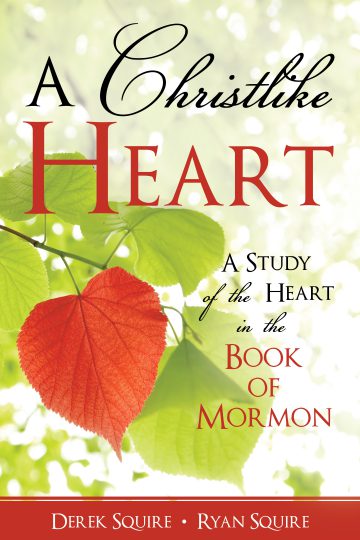
Our book, A Christlike Heart, hits the shelves at Deseret Book and Seagull Book tomorrow!!! It is also available at Amazon.com, Barnesandnoble.com, and Target.com. You can preorder it at any of these places today.
We are so excited that this day has come and would be honored if you buy our book and take the time to read it and share it with others. We’re excited to pass along the insights we’ve gained and the experiences we’ve had in regard to the heart. We hope that this will lead to increased study and appreciation for the Book of Mormon as a result.
Ether 11 – Many Prophets
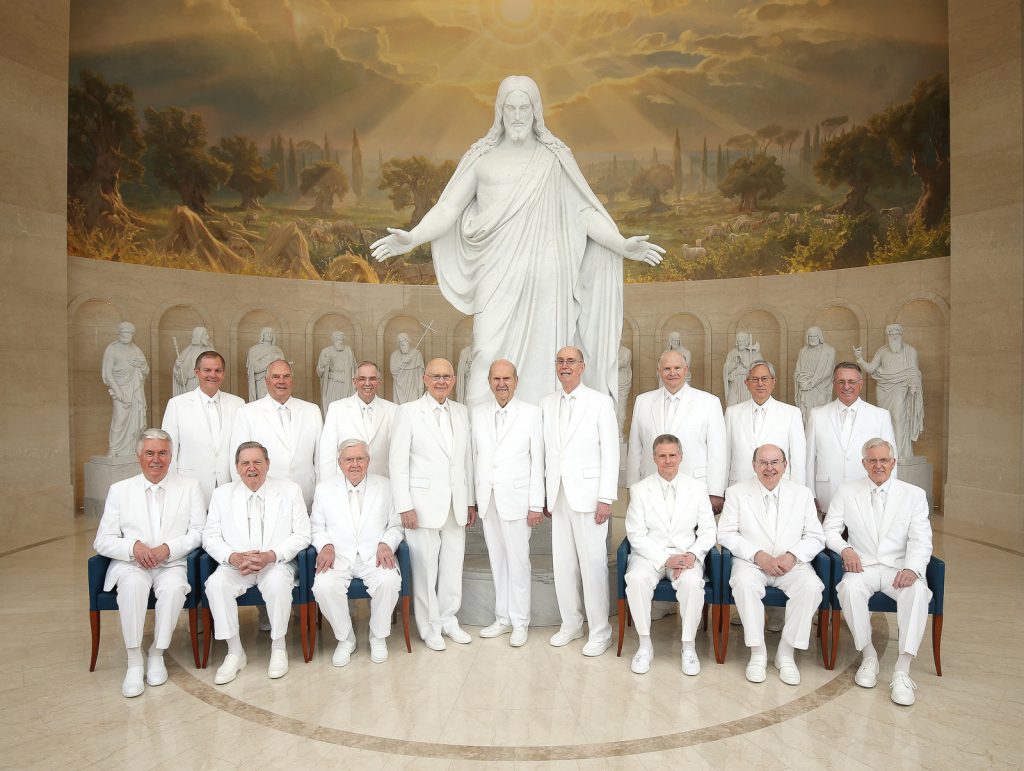
I was reading the other day in Ether 11 and something stood out to me. And just to give you some perspective, this chapter of Moroni’s abridgment of the Jaredite plates spans a significant amount of time across multiple generations.
In verse 1, many prophets are sent to the Jaredites warning the people of destruction if they did not repent. These prophets were rejected by the people and were put to death.
Again in verse 12, there came many prophets warning the people of destruction if they did not repent. Again, the people rejected the prophets and “would not hearken unto their words.” The prophets mourned over the people’s wickedness and withdrew from among them.
Again in verse 20, there came many prophets warning the people of destruction if they did not repent. Again, the people did reject all the words of the prophets.
There are other instances throughout the Book of Ether in which prophets were sent to the people to warn them of destruction if they did not repent (see Ether 7:23; 9:28; 12:2).
Sometimes, we feel like we are only given one chance to keep the commandments and that we need to do everything perfectly. It’s comforting to know that when we make mistakes and sin, the Lord will still be there for us when we repent. He will not give up on us!
Not only did the Lord send prophets on many different occasions to the Jaredites to give them a chance to repent, but He sent many prophets on multiple occasions. Amulek taught that we have been given “so many witnesses” of the truth of the gospel (Alma 34:33). Amulek himself says he was “called many times” before he finally responded positively to the angel who came to tell him to care for Alma (Alma 10:6).
I love the patterns that we can find in the Book of Mormon if we are looking for them. I testify that the Good Shepherd has called after us before, and He is still calling after us today (see Alma 5:37). He will give us every opportunity possible to hearken to His voice and follow Him. It is awesome to consider His long-suffering and patience with us throughout our mortal journey. It makes me want to react in kind and be a more patient husband and dad. I’m grateful for the many witnesses we’ve been given. We’ve been blessed with many prophets, too, who warn us of dangers we face today. It’s up to us accept and follow their counsel for our safety.
Of Campfires and Dwindling

This past summer I had several chances to take in several peaceful campfires in the mountains of Utah and Idaho. There is something captivating and gripping about looking into a campfire. For me, campfires are marvelous tools for self-reflection and introspection. I like to think eternal truths can gently wash over me while looking into the soft flames on a quiet evening – if I will search for them and if I am willing to receive them.
It struck me this year that there are few things in the world that make for a better example of what it means “to dwindle” than a good campfire. A campfire is either growing in intensity and strength due to the addition of fuel, or it is ebbing, waning, fading, and dying. There is no middle ground in the life of a campfire, and yet the changes that take place when one is weakening are subtle and almost imperceptible. Second to second, there are indistinguishable differences in the amount of light and warmth it produces. In the moment, it is difficult to tell that there is any process or change taking place at all. If we are unaware of the process, we will miss seeing any difference at all until a substantial change has already taken place. This slight and almost indiscernible weakening and diminishment of warmth and heat can also be described as dwindling.
I think there is value in looking at some of the definitions of the term “dwindle”. A few definitions include the following:
“to become gradually less until little remains” (American Heritage Dictionary)
“to grow or cause to grow less in size, intensity, or number; diminish or shrink gradually ” (Collins English Dictionary)
“to become smaller and smaller; shrink; diminish, to fall away, as in quality; degenerate.” (Webster College Dictionary)
Other common synonyms include the words decline, sink, weaken, shrink, decay, whither, shrivel, peter out, reduce and taper.
In the Book of Mormon, the word dwindle is used 26 times, nearly always paired with dwindling “in unbelief”, and found within nine different books. Prophets in the Book or Mormon frequently remind us of the divine providence they received in directing and targeting their teachings for us in our day. (Examples include Mormon 8:35 and 3 Nephi 26:12) I have decided that the Book of Mormon prophets’ repeated warnings with regard to dwindling ought to cause myself caution – and maybe even alarm.
Mosiah 1:5 tells us that when the written scriptures and commandments of God aren’t before our eyes, we will dwindle. Alma 50:22 shows that faithfully keeping the commandments leads us to deliverance, while not doing so will lead to dwindling. Helaman 4:23 states that because of iniquity the church dwindled, and testimonies of Christ faltered. The book of 4 Nephi speaks of a people that dwindled “from year to year”. Can I look back at my life and see days, months, and even years that I didn’t grow as much as I should have because of dwindling? Yeah, sadly I can. In Mormon 9:20, dwindling in unbelief is paralleled with departing from the right way and knowing the God in whom we should trust. And we are warned that God’s miracles in our lives cease when we dwindle. I need His miracles in my life!
I have been thinking about what “dwindling in unbelief” would look like in today’s world and in my life. It may be found in slightly shorter and less heartfelt prayers each day, or even skipping prayers here and there altogether. It may be in almost imperceptibly weaker fasts month to month. It may be a little less focus on the Savior in my life and a little less effort to have his Spirit with me. It may be more and more time on social media seeking the world’s validation. It may be a little less diligence studying the scriptures each day, or more and more time passing by without studying at all. It may be an increasing focus on the world and material things, and less focus on things of the spirit. It may be frittering away precious time sitting in front of the television, surfing the web, overindulging in hobbies, or just plain spending time on things that won’t help me grow closer to Christ. Words like casual, periodic, sporadic, and irregular seem to describe dwindling in my life. Dwindling in unbelief can be remarkably subtle, gradual and difficult to recognize. Before we know it we can find ourselves on the outside looking in, or worse yet, on the outside throwing rocks in frustration.
The campfire of our testimony is in constant need of rekindling. Testimonies are either growing or they are diminishing! A fiery redetermination and continual recommitment to serve the Lord is the antithesis of dwindling. An effort to actively grow our testimony will fight the fade. Diligently, patiently, faithfully nourishing the word will defeat the decay. Praying with all the energy of our heart will reverse the decline in our spirituality. It may be that the remedy to dwindling is found in words like intensity, passion, might and strength. I think the long-term solution to overcoming the danger of dwindling is found in Christ-like habits, routines and patterns.
Though dwindling is hard to see in the moment, looking back in my life it is easy to see bigger-than-I-want-to-admit chunks of time that were dwindled away. I have dwindled far more than enough in my life to know its terrible cost, and I am trying to better recognize dwindling and more quickly beat it out of my life. Dwindling happens when I am least prepared to recognize it. I have also felt periods of intense spiritual feasting, and I am trying to better define what it takes to prolong and intensify those periods as much as possible.
How Do You Read and Study the Book of Mormon?
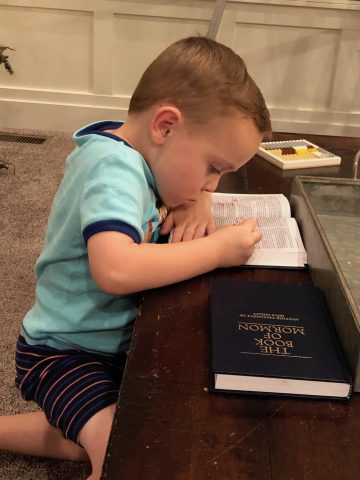
How do you read and study the Book of Mormon? Above, you can see how my son Jack studies/colors the Book of Mormon. 🙂
I love asking people this question to learn better ways to study the scriptures from others. I’m excited to get your answers to this question if you’re willing to share in the comments below.
Personally, I love reading Book of Mormon commentaries. I’ve really enjoyed Doctrinal Commentary on the Book of Mormon by McConkie and Millet and Understanding the Book of Mormon by Grant Hardy among others. I will share some of the specific ways I study in my next post. Today, however, I want to discuss how much time we spend studying the scriptures.
The one study practice that has single-handedly changed my life comes from President Ezra Taft Benson. He said, “There is a book we need to study daily, both as individuals and as families, namely the Book of Mormon. I love that book. It is the book that will get a person nearer to God by abiding by its precepts than any other book. President Romney recommended studying it half an hour each day. I commend that practice to you.”
Before adopting this practice as a teenager, I called myself a Book of Mormon “chapter chewer.” I tried to read a chapter a day and the only thing I worried about was finishing the chapter for that day. You can imagine how excited I was when I was reading 3 Nephi 30 or one of the first few chapters from Moroni. 🙂
Everything changed for me when I started reading for 30 minutes each day. All of a sudden, I didn’t worry about how much I read. Instead, I began focusing on what I was really learning and understanding from my reading. I had time to ponder what I was reading, too, and that’s when revelation is more apt to come.
If we really want to draw nearer to our Savior, if we really want to gain or strengthen our testimony of the Book of Mormon, is 30 minutes of study a day too much to ask?
I admit that in the past studying has sometimes felt like a burden, but I’ve been blessed the last few years with incredible excitement and joy for the scriptures. It’s the best part of my day. I’ve found no better way to invite the Spirit more strongly into my life than by reading the Book of Mormon.
If you don’t currently feel this excitement and joy, pray for this spiritual gift and then consistently study and I promise it will come to you! And then you’ll notice how quickly time flies when studying the scriptures and you’ll wish you had more time. It’ll become a clock-chewing, not a chapter-chewing experience.
What to Expect from our New Blog
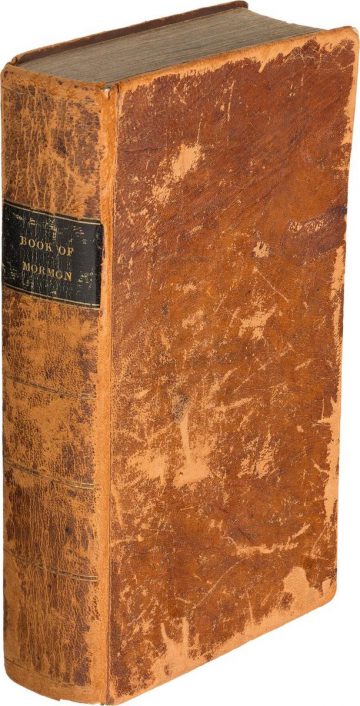
Hello, everyone! Thanks for visiting our new blog about the Book of Mormon. We are so excited to share with you our thoughts and impressions about this testament of Christ and His gospel in this format. Our personal testimonies of the Savior and His life, teachings, and atoning sacrifice have been forever changed because of our study of this book.
We expect to add new blog posts at least every week or so. We hope to provide a forum where we can share our views and insights with you and you can do the same and thus learn from each other. The Book of Mormon was written for our day. We love finding application to our current circumstances from its pages and are looking forward to sharing some of these experiences as well.
We also hope to give some new or added perspective on stories with which you may be quite familiar. There are so many hidden gems within its pages. We are excited to unearth some of them. Please feel free to openly share your comments with us about whatever we are discussing. You can also let us know certain topics you’d like us to explore further. We love to learn and selfishly believe that this blog will help us learn from all of you.
Ryan and I have been writing a new book titled A Christlike Heart – A Study of the Heart in the Book of Mormon. We are excited to tell you that it will be published by Cedar Fort in May 2019 and is currently in the editing process with them. You can see what the cover will look like under the “About the Book” link. We’ve put a lot of time into this project and are anxious to share what we’ve learned in our study of this important topic in the Book of Mormon. If we can give one person extra motivation to work on developing a more Christlike heart then our book will be considered a success for us.
Thanks again for visiting our website. We hope you enjoy the blog and happy feasting on the word of God!
Moroni’s Fortifications – Alma 50

I absolutely love the war chapters in the Book of Mormon! There are so many lessons that can be drawn from Alma 46-62. I’m sure we’ll have many different entries about this portion of the Book of Mormon as we go along.
Today, I want to focus on Alma 50:1-4. We learn that “Moroni did not stop making preparations for war” against the Lamanites. He was constantly preparing himself and his people to stay a step ahead of the Lamanites. In Alma 50, Moroni began fortifying all of the Nephites’ cities in a particular manner to protect them from the Lamanites.
They did four things specifically. First, they dug up heaps of earth round about the cities. Second, on top of these heaps of earth, they built up works of timbers to the height of a man. Third, on top of these works of timbers, they built frames of pickets that were strong and high. And fourth, they erected towers that overlooked those frames of pickets from which guards could see the enemy approaching.
I’ve thought a lot about these fortifications. Individually, we all need to build up spiritual fortifications against the buffetings and temptations of Satan. These four types of fortifications symbolically remind me of things I need to do to protect and strengthen myself spiritually.
First, digging up heaps of earth reminds me of kneeling down on the ground or the earth to pray. The more we get ourselves down on the earth and dig our knees into the ground to pray, the more this fortification will completely encircle us. Prayer is a wonderful protection for all of us, but enemies could still effectively attack us without additional fortifications.
Second, the works of timbers remind me of the scriptures. What do you need to make paper? Timber, of course! The scriptures are a work of timber. Daily feasting upon the scriptures fortifies us against our attackers and their deadly arrows. Still, these works of timbers were only built up to the height of a man. The enemy could still overcome this obstacle with persistence and do some harm.
Third, the frames of pickets remind me of Church steeples and temple spires. We need to be consistent in both our Church and temple attendance to make these frames of pickets strong and high. We make it much less likely for an enemy attack to be successful with these three fortifications in place.
Fourth, the towers that were erected for guards to overlook the works of pickets remind me of the watchmen on the towers we have today, our prophets and apostles. Great safety is promised if we follow their counsel.
Our fortifications are quite strong and secure at this point, leaving only one vulnerability – the place of entrance. This vulnerability is mentioned five times in Alma 49. The only way into our place of security if we have properly fortified ourselves is through the place of entrance. We have to always guard ourselves against what we bring into our mind, eyes, and heart. Satan can get into our place of security through the entrance if we allow. However, if we fortify ourselves through prayer, scripture study, Church and temple attendance, and by following the prophet, the Holy Ghost will strengthen us in our efforts to resist temptations that are aimed directly at our place of entrance.
An Abinadi in Hawaii
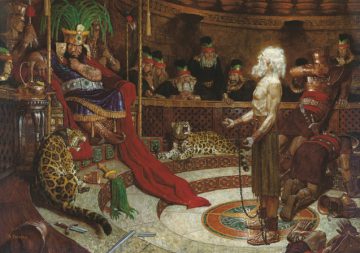
Ryan’s Missionary Experience:
Abinadi is my unabashedly favorite prophet in the Book of Mormon and has been for as long as I can remember. It felt fitting to make him the subject of my first blog post and I apologize for the length. Future blog posts will be much shorter than this one, I am sure. I think Abinadi’s teachings found in Mosiah 11-17 comprise some of the most beautiful testimony we have been given of the Savior’s Atonement. Mosiah 16:9 is my favorite verse in scripture. Speaking of Christ, Abinadi testified “He is the light and the life of the world; yea, a light that is endless, that can never be darkened; yea, and also a life which is endless, that there can be no more death.” Abinadi testified boldly and courageously, and he sealed his testimony being burned to death.
One of the most interesting facets to Abinadi’s story was that he never lived to see the baptism of a single convert. He was a marvelous prophet of God, and yet, he did not witness the baptism of a single soul. The only fruit that he saw of his efforts was a wicked priest of King Noah that pled for the life of Abinadi and fled from his court in the beginning of Mosiah 16. That priest that took off was the sum total of what Abinadi’s mortal eyes would have seen from his missionary labors. One of the great lessons of the story of Abinadi is that it is our duty simply to testify and invite others to change. The results are in the hands of the Lord, and the glory is His.
I had an amazing experience on my mission in Brazil that taught me that we sometimes have no idea the impact our testimony or invitation can have in the life of another. I once shared this experience in a Stake Conference talk and an employee of the Church magazines asked for the story. It was later published in the New Era, but as that was a long time ago I want to re-share the story.
I served in the São Paulo Brazil East Mission. In my first months in the mission, I met an elderly Japanese-American couple who served in various capacities within our mission. Brother and Sister Tsuya were well known for two things. The first was the haircuts Brother Tsuya would give the missionaries on transfer days, haircuts of such unusual method and result that the Mission President gently asked him to retire his clippers shortly after I arrived.
The other thing the Tsuyas were known for was their incredible love for others and the burning and fiery spirit of missionary work in all they did. Their presence in Brazil was unusual because they spoke no Portuguese and only spoke English with a thick accent. The lack of Portuguese didn’t seem to slow them down. Each week they went to the street market, they would take a box of Books of Mormon they had bought with their own money, and would always come back empty handed. They invited anyone and everyone they encountered to come unto Christ, never mind their lack of Portuguese. To be around them was to feel the Spirit.
One transfer day I had the chance to talk to Brother Tsuya. He began his story and I found out that he had joined the Church in Hawaii. I thought that was interesting and told him that my grandfather had served a mission in Hawaii and was there during the attack on Pearl Harbor. Brother Tsuya was very surprised at this and said he had joined the Church during that time on Oahu, but didn’t remember an Elder Squire. I told him that it was my mom’s father, Elder Thurgood, who had served in Hawaii.
Brother Tsuya almost fell out of his chair stood up and yelled out “Elder Thurgood is your grandpa?!?” By this time many missionaries had gathered around to listen. Brother Tsuya then related the story of meeting my grandpa. He said one night while he was eating a meal in the Hawaiian community style; he was being inappropriate and was taking the Lord’s name in vain among other things. A man with a nametag of some sort, my grandfather, had spoken up and asked him to stop. Brother Tsuya said he didn’t think much of the interruption and once again took the name of the Lord in vain.
The next time he did that he said that my grandpa had come over to him, hit him hard on the shoulder, and lectured him about how little he knew about life, how he wasn’t as smart as he thought, how he needed to quit smoking and do a bunch of things differently and come unto Christ or he wouldn’t ever amount to anything in this life. Elder Tsuya said that he would always remember those moments, and found the experience intensely embarrassing and humiliating.
Brother Tsuya told me that when he went home that night, the words directed at him sunk deep into his soul. He thought and thought about things that had been said, and he decided he wanted to make some changes. He ran into two similarly dressed missionaries a couple of weeks later and stopped them to ask them their purpose on the islands. He quickly agreed to listen to the discussions with a sincere desire to change and was baptized very shortly thereafter. Brother Tsuya gave much of the credit for his decision to listen to the missionaries to that experience with my grandpa. He had a journal entry from that night (of which he later kindly provided me a copy) that recorded the events of the night, desires he had to change, and included the name on that nametag: Elder Thurgood.
I quickly wrote home telling my family I had HUGE news and that Grandpa Thurgood needed to be there when I made my telephone call at Christmas, which was a couple months away. I felt like this story was worth sharing over the phone and I spent several letters getting the family excited.
When I called home, the first item of business was to get to the bottom of what I wanted to share. With everyone listening, I finally told Grandpa Thurgood that I had met somebody that came into the church because of him. I will always remember how quiet the phone call became, with all the background chatter coming to an abrupt stop. Finally, Grandpa Thurgood spoke and said, “Ryan, you are mistaken. I never brought anybody into the Church on my mission.”
I then asked him if he remembered hitting a smart aleck Japanese-American kid at dinner in Hawaii and then lecturing him on how much he needed to change his life. He became confused, then flustered, and said that he did remember the incident well as it was the only time he had ever done anything like that. Grandpa wanted to know what this had to do with anything and how I knew about that experience.
I told my Grandpa that a couple weeks later that boy had stopped similar looking missionaries and decided to listen to the discussions because of what Grandpa had said to him that night. That boy had later married in the temple in Hawaii. That boy grew to serve in various callings in the Church and blessed many, many lives. That boy later served as a mission president in Tokyo, Japan for three years. That boy also served as president of the Tokyo MTC in Japan. That boy had also served several other missions with his wife and was now in Brazil because they never placed any limitations of where they served or what language they were asked to speak. That boy had grown to have children and grandchildren that were faithful in the church.
My Grandpa Thurgood was in tears and unable to talk for the remainder of the phone call. He had spent 54 years thinking his mission hadn’t made a difference to anybody other than himself. When the Tsuyas completed their mission service in Brazil, my grandparents went to the temple with the Tsuyas and had a tearful and very joyous reunion.
The lone convert that we know of from Abinadi’s efforts was Alma, a man that became a great prophet and converted many at the waters of Mormon. He had faithful children, including the late bloomer Alma the Younger, who was also a great prophet. Helaman, Helaman, Nephi, and Nephi, whom the Savior called from the multitude in 3 Nephi, were also direct descendants of Alma. A large portion of the prophecy and story of the Book of Mormon after Abinadi was shaped by his lone convert.
We never know the effect our testimony or invitations to change will have on those around us. How could my grandpa have known the difference his testimony at dinner would have on a young man? President Gordon B Hinckley said, “You never can foretell the consequences of your work as a missionary in this Church. You don’t know what will come of it. You may be turned down, you may have the door slammed in your face, you may have all of these things that happen so frequently and think that you’ve accomplished absolutely nothing, but miracles come out of these very, very small beginnings.” President Gordon B. Hinckley, Seminar for new mission presidents, June 23, 2000.
Abinadi teaches us that it is not ours to judge those around us when sharing the gospel. It is so easy to look at others and assume they are not interested in the gospel, not prepared to make changes, not “golden.” We think the soil is rocky and that nothing would grow if we tried. There is no scripture that calls us to be judges of the soil. Our responsibility is merely to cast seeds. We are called to share. We are called to invite. We are called to include. The gospel is a gospel of repentance, a gospel of change. In Christ is the power for all men and women to change. He has the power to heal every one of us and there is nothing so exquisitely sweet as seeing a soul come unto Christ. By divine design, we do not know who will accept or reject our testimony and invitation. Ours is merely the responsibility to invite all to come unto Christ.
